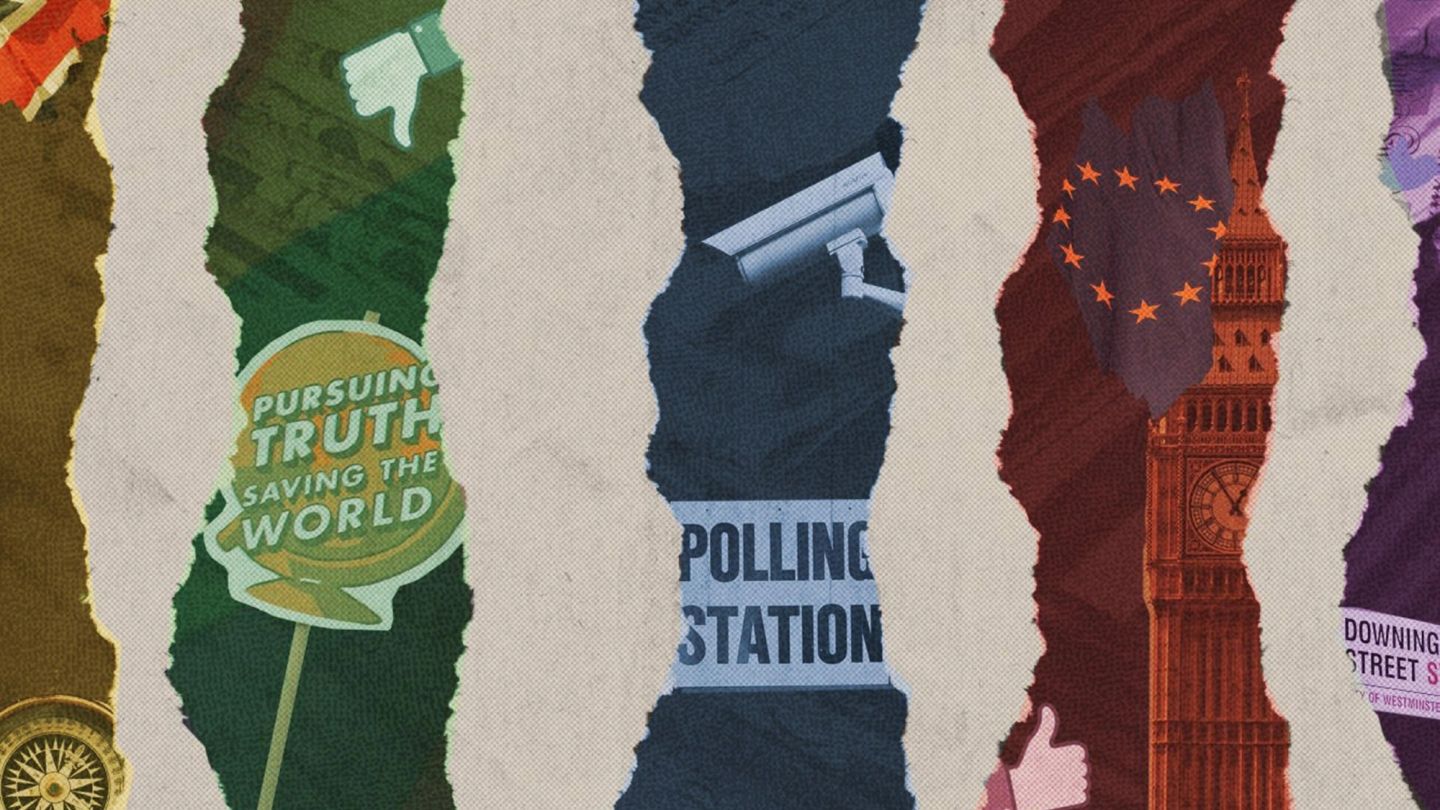

The Week in Westminster: Damp debates and manifestos made easy
Your need-to-know guide to this week's UK political happenings
Words: Zoe Dickens
The General Election is now just three weeks away and, with the first televised leadership debate and the publication of the first party manifestos, this week really saw things heat up. Read on for the full debrief on the highlights from this week’s political goings on…
A one-all draw at full time
Tuesday evening saw Jeremy Corbyn and Boris Johnson go head-to-head in the first televised debate of the 2019 General Election campaign. More than 6.7 million British television viewers tuned in (more than a third of the entire TV audience for that evening), with a large continent of these in the influential 16-34 age bracket, making this a key opportunity for both leaders to win round undecided voters. Which, the consensus is, both of them failed to do.
Polls taken immediately after the debate showed an almost 50-50 split on who the public considered to be the ‘winner’, although with Corbyn on the back foot with opinion putting him at just a 25% chance of emerging victorious heading into the debate, it could be argued he achieved the greatest result of the two.
Throughout the debate Johnson leaned heavily on his ‘Get Brexit Done’ catchphrase, shoehorning it into almost every answer, and suffered a humiliating moment of disparaging laughter from the live audience when making comments about the importance of trust and transparency in politics. Corbyn, meanwhile, stumbled when asked to clarify Labour’s stance on Brexit, but made a good job of highlighting the potential of NHS sell-offs under a Tory government. He also won public support when expressing sympathy for the alleged victims of Jeffery Epstein in the wake of Prince Andrew’s disastrous interview on the subject at the weekend.
Notably, although conversation on Twitter and other social media platforms during the debate was lively, there was little in the way of video clips being shared. This lack of viral clips could be a big problem for both parties as such videos often gain far more reach, comment and traction than televised debates as a whole, suggesting this debate could do little in the way of changing voter behaviour. The Conservative party also came under fire from both the public and the social media platform for rebranding its official account as FactCheckUK while publishing anti-Labour content, leading to accusations of misleading the public and a promise of punishment from Twitter should it happen again.
In other debate news, Johnson looks set to reject an invitation from other party leaders to join them for a live debate on climate policy. However, he will join the leaders of Labour, Liberal Democrats and the SNP for a special Question Time Leaders’ Special to be shown on BBC One this evening (Nov 22). Further debates are scheduled for November 29 and December 6.
Make mine a manifesto
After drip feeding policy promises for the past few weeks, parties finally started revealing their official manifestos this week. For obvious reasons, these are lengthy, detailed documents, but here’s a few highlights:
Labour, Health: Increase spending on the NHS by 4.3% per year, free dental check-ups for all, lifetime caps of £100,000 on cost of personal care, a reversal of NHS privatisation and new rules and taxes around sugar, salt and the advertising of junk food.
Brexit: Negotiate a new deal with the EU within three months and then put it to a legally-binding referendum within six months.
Immigration: EU free movement would continue if the second referendum results in the UK remaining within the EU, otherwise this would become negotiable under a new deal. Indefinite detention of migrants would be scrapped as would minimum income requirements, it would also be easier for migrants to burg family members to the UK.
Education: Scrap tuition fees, free schools and academies would be brought under local authority control, up to six years of adult learning for free, the close of tax loopholes for private schools, paid maternity leave for 12 months and 30 hours of free nursery for 2-4 year olds.
Economy: £400bn to be spent on infrastructure and low-carbon technology while railways, broadband, postal services, energy utilities and water would be put under public ownership.
Tax: Windfall tax on oil and gas companies, income tax increase for those earning over £80,000, reversal of corporation tax cuts, no VAT increase, 5% pay rise for public sector workers, living wage of £10 per hour for everyone aged over 15, reversal of inheritance tax cuts.
Environment: ‘New green deal’ will substantially reduce emissions by 2030, a clean air act to improve pollution levels, £5.6bn for flood defences, bottle return schemes introduced.
Liberal Democrats, Health: £7bn investment in the NHS paid for with a 1p income tax raise, introduce a new health and care tax, baby boxes for new mums, increased emphasis on mental health including free prescriptions for chronic conditions.
Brexit: Article 50 would be revoked and Brexit cancelled. The UK would remain in the EU.
Immigration: Anti-hostile environment policies including protecting freedom of movement, reduced fees for registering children as British citizens, 28-day limit on immigration detention, giving asylum seekers right to work after three months and resettling 10,000 unaccompanied refugee children.
Education: Extending free nursery hours to include children from nine months old, scrap SATs, hire 20,000 more teachers with starting salaries of £30,000, reinstate a new form of education maintenance allowance.
Economy: £130bn infrastructure investment for public transport, 300,000 new homes a year by 2024, increase in corporation tax to 20%, £10,000 per adult for education and training.
Environment: Insulate all homes in Britain, generate 80% of UK electricity using renewable sources, make all new cars electric, net-zero emission by 2045, tax on frequent flyers.
Green, Environment: £100bn per year investment to reduce emissions to zero by 2030, phase out all petrol and diesel cars by 2030, create jobs in green industries, plant 700 million trees by 2030, ban single-use plastic.
Health: £6bn per year investment in the NHS until 2030, huge reduction in private sector involvement in the NHS, invest £4.5bn per year in social care.
Economy: Introduce carbon tax on oil and gas extraction and use of petrol, diesel and aviation fuels, frequent flyer tax, build 100,000 zero-carbon homes for affordable renting, fund a basic income of £89 for all adults and scrap existing benefits (excluding housing benefit), invest £2.5bn on cycle routes, scrap HS2 and electrify rail network.
Education: Scrap tuition fees, write off existing debt for those who paid £9,000 fees.
Conservatives, SNP and the Brexit Party are all yet to make their manifestos public but we’ll have the full rundown in the next week’s The Week in Westminster.
From across the pond: Josh Glancy wants to know why American men dress so badly…


